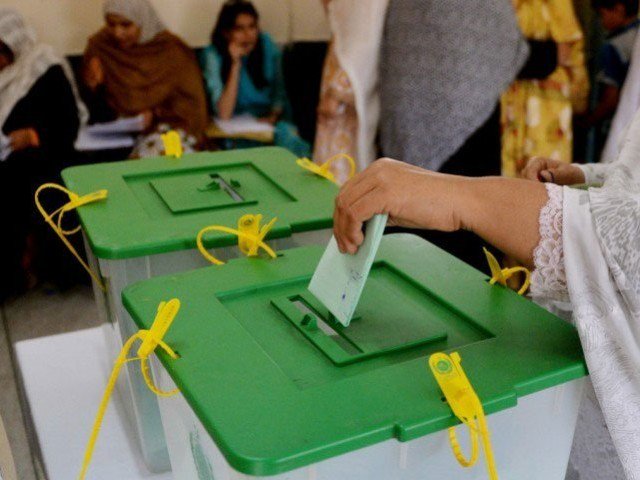By: Deedar Ali Bangwar
Pakistan adopted, or ‘inherited’, a democratic system of government at the time of the partition. The term ‘the Islamic Republic of Pakistan’ signifies the rule or government of the common masses within defined Islamic injunctions or fences. Nevertheless, since the establishment of Pakistan in 1947, democracy in Pakistan remained in shambles until today. The democratic governments have not only demonstrated distinguish accomplishment and performance but also smoothly altered capability to another government as per election conclusions for the first time in the history of Pakistan. The ECP has too enhanced its performance and the citizens have become conscious of their privileges to rule. These all episodes have developed hopes for democracy in Pakistan. On the other hand, the feudal lord system, corruption of democratic rulers, impoverished literacy rate and suffering economy of the country, all affairs act as hurdles in the path of democracy in Pakistan. Therefore, it is defined that the democracy in Pakistan confronts hopes as well as hurdles.
Firstly for thousands of years, philosophers and political leaders have invariably acknowledged that with the existence of extreme economic imbalance in a nation, democracy cannot win. In an unequal society, either the affluent would persecute the underprivileged and democracy would get transformed into an oligarchy, or the masses would overthrow the rich as an aftermath of class struggle. Hence economic egalitarianism is indispensable for democracy to flourish.
However, according to a report, the income and wealth unevenness in Pakistan is from top to bottom. Only 22 persons in the country have billions of wealth and reserves. The rest spend their life in misery, hunger and poverty. Therefore, with such a deep gap between rich and poor, no democracy can succeed or tolerate the desired fruits in Pakistan. In a democratic nation, people make determinations for themselves. They select their diplomats who then perform legislation. Certainly, one desires to be well conscious of his/her privileges and literate enough to bring nicer decisions in a democratic nation. However, in Pakistan, where the overall literacy rate stands at approximately 58%, one can effortlessly picture the grim circumstance of the democratic significance in the country. Most of the people are unaware of their rights and the role of the elected people. Thus, such people are invariably exploited by those in power.
Secondly Besides, owing to illiteracy, feudalism is too deeply rooted in some parts of the country. The feudal lords do not permit their subjects to get an education. Similarly, these subjects of the landlords, as evident in a maximum of the rural regions of Sindh and Baluchistan, are under compulsion to cast their votes according to the intentions of their masters. Hence, genuine democratic culture and system last elusive.
Thirdly Furthermore, when a community is distributed by culture, theology, sects, lineages, and clans, it comes to be arduous for a democracy to nourish. As democracy needs the masses to determine one civil destiny, with the division among masses, people desire toward contrary future objectives. As Lincoln had rightly said, “A house divided against itself cannot stand.”
Nevertheless, in Pakistan, people are mainly distributed provincially, linguistically, and based on sects, lineages, and groups, this eventually hinders democracy from winning because the entirety of disconnected nation lacks a mutual goal. Therefore, a united democracy is vital to the functioning of democracy.
Fourthly Education and democracy are ingredients and parcel of each other. The more people are educated, the higher the standards of democracy would be. In Pakistan, the education sector has constantly been ignored in the past. The difficulties related to the education system were never talked about. Nonetheless, the current government is making struggles to deal with the problems with the education system. In this concern, the ‘Single National Curriculum’ has been initiated and the policy is being followed with enormous vigour. This plan intends to eliminate the disparity in the accomplishment of education. It would assist to combine the gap between the three different tiers of classes in the nation. When all the people would achieve the same education, it would give rise to egalitarianism or equity among the public by subtracting economic imbalance among the masses in the extended run. Ultimately, this would enhance democracy in Pakistan.
Lastly, To attain a practical democratic system of government in Pakistan, some urgent and pragmatic efforts are needed to deal with the hurdles already discussed above. More and more people from the lower class and middle class should be educated and motivated to join politics. Common people should be made conscious of their rights and accountabilities. Across-the-board responsibility of all the elected members of the government should be assured. The state organizations should be made entirely self-reliant. Last, but not least, the media must play its diaphanous and impartial role in examining the action and performances of the incumbent government, broadcasting the information, and highlighting the social problems.
The writer is a freelance journalist, based in Kandhkot, Sindh. He can be reached at [email protected]
